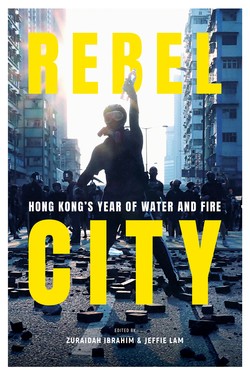Читать книгу Rebel City - South China Morning Post Team - Страница 15
На сайте Литреса книга снята с продажи.
Too few changes, too late
ОглавлениеIn late March, the government gave in to the business sector. It amended the bill to exempt nine white-collar crimes from the proposed list of 46 extraditable crimes and raised the threshold for extradition to offenses punishable by three years in prison, instead of one year. However, that failed to assuage the business community, including AmCham.
Despite discontent swirling in the pro-establishment camp, there were no indications at that point of Beijing’s views on the bill, a source from the Business and Professionals Alliance said. Hong Kong delegates to the annual parliamentary “Two Sessions” meetings in Beijing in March received no “instructions” or “reminders” to support the amendment. The delegates realized then that the bill was not being introduced at Beijing’s behest.
In mid-March, the head of China’s Ministry of Foreign Affairs in Hong Kong issued a mildly worded statement reminding other countries to respect the city’s rule of law and its normal legislative process. Even key mainland experts on Hong Kong affairs, including those specializing in the city’s Basic Law, did not know much about the bill or its rationale, according to groups in contact with them.
However, Beijing did reach a turning point, according to Tam Yiuchung, the city’s sole representative on China’s top legislative body, the National People’s Congress Standing Committee. This was after a group of Hong Kong pan-democrats went to the US in March to rally support against the bill. The delegation, led by former chief secretary Anson Chan Fang On-sang, and which included lawmakers Dennis Kwok and Charles Mok, met congressmen and Vice-President Mike Pence, and urged Washington to oppose the bill. A domestic Hong Kong issue was suddenly becoming a potential new front in the geopolitical rivalry between the US and China, already in the middle of a trade war.
In April, Beijing’s liaison office in Hong Kong invited a group of government supporters to set up a pro-bill alliance. This outfit then set up street booths and collected hundreds of thousands of signatures from Hongkongers supporting the legislation. In May, Zhang Xiaoming, head of Beijing’s Hong Kong and Macau Affairs Office and its top man in charge of the city’s affairs then, broke his silence. He said the legislation was necessary, but he also asked Lam’s government to address people’s fears.
In Legco, outnumbered pan-democrat lawmakers were unsure they could block the bill. Remembering all too well that the 79-day Occupy protests of 2014 had failed to get Beijing to budge on political reforms, the camp was splintered, listless and uncertain of its prospects. “We weren’t optimistic,” Democratic Party leader Wu Chi-wai recalled. “We knew our hands would be tied once the bill was put to a vote.”
He and others decided instead to do their utmost to drag out the bill’s passage. The usually calm Wu got into a scuffle in May as proestablishment and pro-democracy lawmakers fought for control of a committee scrutinizing the bill. Punches were thrown, with one lawmaker landing in hospital and at least three others injured.
Their efforts to stoke opposition to the bill began to produce results. The first protest march they organized in April attracted an estimated 12,000 people. A second drew an estimated 130,000 – the largest turnout since Occupy.
Pro-establishment lawmakers began sensing that the ground was fast souring. One said it dawned on her in early April that the government had lost the propaganda war. “I urged security officials to produce ‘pamphlets for dummies’ about the bill,” she said. Officials rebuffed her, confident that they could get the bill passed. She felt the pro-establishment camp had a blind spot in that many believed the pan-democrats were spreading lies about the bill’s negative effects, and these would be exposed once it was passed.
On the pan-democrat side, Wu recalled: “By around May, we could feel the escalating momentum. Ordinary citizens had started to care.” Some were unhappy with the government’s dismissive attitude toward the Bar Association, which had repeatedly criticized the bill and had urged officials to find other ways to deal with the Taiwan murder case, he said.
Pro-business lawmaker Chung said: “It isn’t surprising for the administration to ignore the pan-democrats, but it should not have turned a deaf ear to the Bar Association, which is a well-respected body.” When concerns were also raised by the more conservative Law Society, representing the city’s solicitors, it was clear that the bill was in dire straits.
